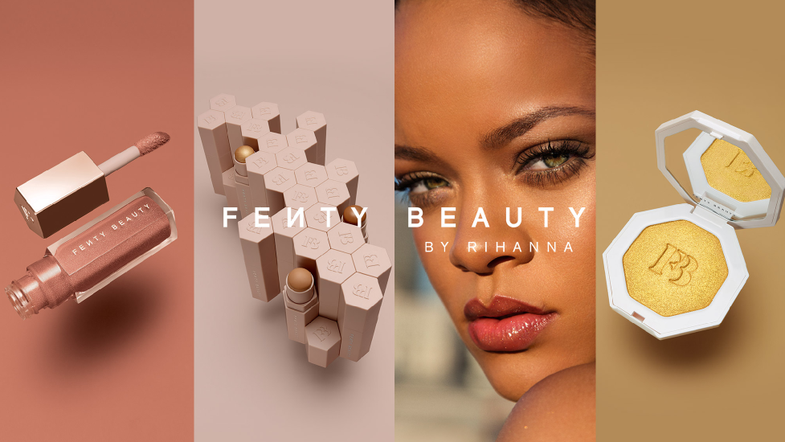There has been a steady rise in celebrity partnerships with brands and with this rise, we have seen celebrities become synonymous with brands (Diddy and Ciroc). There is a fine line between full ownership, joint ventures, and being a brand ambassador. We are here to help you understand.
Brand Ambassadors:
While the bag is still big for brand ambassadors, they generally fall beneath the line in terms of being a full owner, just a founder of a business or brand, or joint ventures/partnerships. Take Rihanna’s 2014 multi-year deal with Puma to be both a national brand ambassador for women’s fitness and a creative director.
The Bajan songstress and business mogul does not own Puma, but the brand recruited her to help improve their image and increase their coin. For around 1 million dollars Rihanna helped reinvigorate the Puma brand. Her influence manifested itself in repeated increases in quarterly profits for the brand. This would help pave the way for future business moves by Rihanna.
Licensing:
Licensing is a bit different from ambassadorship. Although popular in the clothing industry licensing has become popular in other fields as well. When a celebrity is licensed by a company, the company licenses the likeness, name, and rights of sed celebrity in an effort to convince consumers that the celebrity has his or her own line.
In this case, the brand already has distribution, designs, manufacturers and most of the production matters planned out. The celebrity may have the power to approve on designs but that is generally the extent of their power in the situation.
A perfect example of a notorious celebrity who is known for being licensed is Donald Trump. According to the Washington Post Trump’s last name has been licensed to over 50 projects. Quite a number of them are real estate projects and have licensed his name to present a certain image or ideal associated with it. In short, licensing is not the path for celebrities who want to play a very active role in the product. A better role would be as a partner in a joint venture.
Joint Ventures & Partnerships:
One of the next steps in businesses for celebrities is doing joint ventures. Many state that joint ventures and partnerships, while they vary in some ways, are essentially the same thing. Some even argue that partnerships are a subset of joint ventures.
Joint ventures generally apply to two or more companies joining together in business where they share, joint control, right to profit, and losses. Partnerships usually refer to two individuals who are co-owners and share much or the responsibilities mentioned in a joint venture. Celebrities, in some ways, operate as companies so their joining with other companies can be classified as either, depending on the terms of the agreement.
Although they are incredibly similar, partnerships are considered to provide the celebrity more freedom and generally lasts longer.
Celebrities in Joint Ventures & Partnerships:
Joint venture’s much like Diddy’s joint venture with Diageo provides the celebrity more capital than as just an ambassador. While Diddy began as a brand ambassador for Diageo’s line, this partnership soon morphed into what is now their joint venture.
Diageo, one of the world’s leaders in the drink business, utilized Diddy’s influence and business savvy in an attempt to “take over the tequila business”. The results of Diddy’s work as Ciroc’s brand ambassador coupled with his business savvy helped form the “50-50” partnership with Diageo.
The Diddy Diageo pair purchased tequila brand DeLeón. Since then they have been busy raking in racks. The company has seen a steady rise in profit since the announcement over four years ago and Diddy has seen his profits increase as well.
Rihanna’s deal with LMVH, however, has been consistently referred to as a partnership. The Bajan business mogul’s 10 million dollar deal with French multinational luxury goods conglomerate LMVH allowed what we now know and love as Fenty Beauty to come into fruition.
Although Rihanna has been noted as the founder and face of Fenty Beauty, she is also a partner with LMVH. She, as she has expressed, has been very active in the creation, branding, marketing, models, and much more in regards to the brand. Her involvement and partnership with LMVH has raked in quite a bit of cash for all parties involved, including Rihanna.
The brand reportedly earned a staggering 75 million dollars in late 2017 and has continued to garner rave reviews and loyal fans. It is unclear how much exactly Rihanna has personally made from the brand but she’s surely getting her coins.
In short, joint ventures generally have a mix of ambassadorships and licensing. Celebrities tend to be more active in joint ventures and partnerships and tend to generate more money as they are more involved. Joint ventures are also closer to ownership although they do not mean that a celebrity is a full owner of a brand or business.
Can you think of any brands owned by your favorite celebrity? Let us know in the comments!
